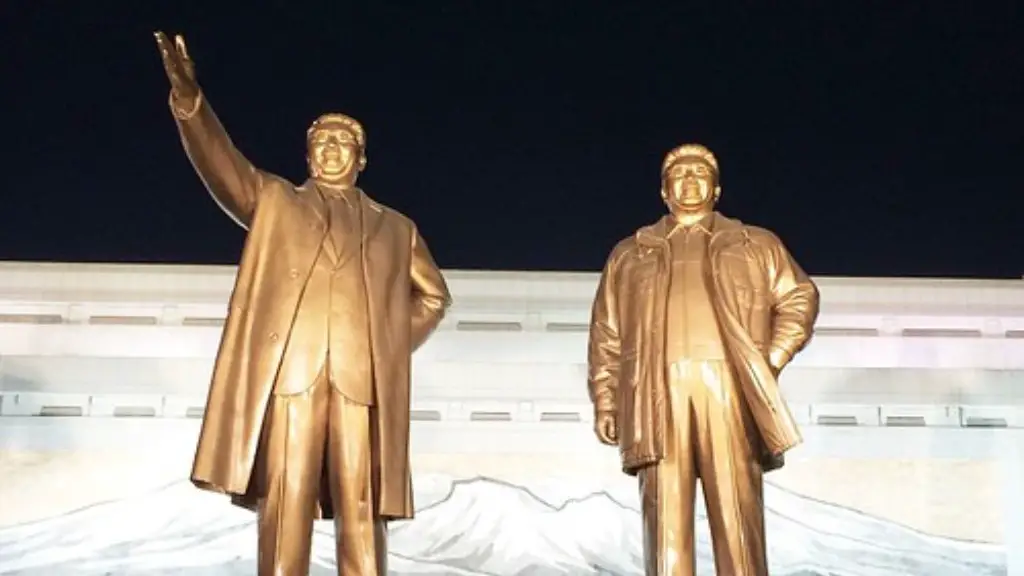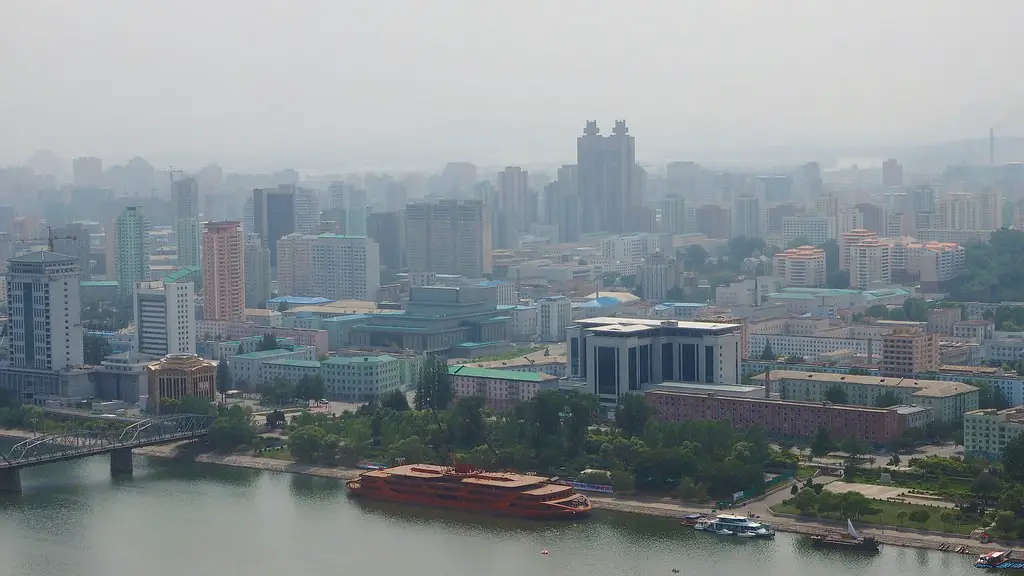Background Information
North Korea, also known as the Democratic People’s Republic of Korea (DPRK), is a one-party authoritarian state located in East Asia. It is bordered by Russia, China and South Korea and is currently ruled by the third leader of the Kim dynasty – Kim Jong-Un. The country has been subject to international sanctions and remains isolated from the world economy. It is a nuclear power and has long been perceived as a potential threat to global security. In recent years, tensions between North Korea and the international community have escalated due to the country’s nuclear and missile programs. In this article, we will explore why North Korea is unlikely to launch an attack on its neighbours or the wider world.
Military Power
North Korea has a large military, estimated to be around 1.2 million personnel in total. It also has an extensive range of ballistic missiles, as well as nuclear weapons. Despite these military capabilities though, it is unlikely that the country will launch an attack on its neighbours or the wider world due to its numerous disadvantages. Firstly, it is clear that North Korea would be heavily outnumbered and outgunned in any conflict. It has comparatively archaic weaponry, some of which is imported from Russia or China. Additionally, the country’s infrastructure is relatively outdated. Its air force, for example, is made up of mostly Soviet-era jets, many of which are considered obsolete.
Regional Alliances
In addition to its military weaknesses, North Korea also lacks allies in the region. The country has been governed by a series of authoritarian leaders who have maintained a confrontational stance towards neighbouring states. This has led to increased tensions and the country’s isolation from the global community. North Korea’s only real ally is China, which has been relatively successful in discouraging North Korea from launching an attack by providing economic assistance and diplomatic support. South Korea and Japan, North Korea’s closest neighbours, have both long championed US-led efforts aimed at curbing North Korea’s nuclear ambitions.
International Pressure
The international community has also been increasing its pressure on North Korea. The United Nations (UN) has developed a range of economic sanctions that have targeted North Korea’s nuclear and missile programs. The sanctions have been relatively successful in curbing the country’s military ambitions, forcing it to depend on other countries for food and fuel. The UN has also utilized diplomacy in order to encourage North Korea to comply with its security obligations. However, despite the international pressure, North Korea has remained defiant in its stance, refusing to negotiate or submit to international control.
Fear of Retaliation
The final reason why North Korea is unlikely to launch an attack is the potential for retaliation. If North Korea were to launch an attack, the international community, including the US and its allies, would almost certainly retaliate. This could include retaliatory attacks on North Korea, or economic and diplomatic measures. The latter could prove to be particularly damaging to North Korea’s economy, which is already heavily sanctioned. As a result, North Korea is likely to assess the potential risks of attacking and will instead focus on maintaining its nuclear deterrent.
Political Factors
The political situation in North Korea is also a key factor in understanding why they are unlikely to launch an attack. North Korea is a one-party authoritarian state that is controlled by the Kim dynasty. Leaders of the country have historically focused on maintaining power, often using force if necessary. As a result, the Kim dynasty is unlikely to launch an attack if it could result in the destabilization of their rule.
Economic Considerations
Economic considerations are also a key factor in understanding why North Korea is unlikely to attack. The country’s economy is highly dependent on foreign aid, particularly from China and South Korea. Any attack would disrupt this aid, resulting in economic hardship for the country, as well as potential famine. Additionally, North Korea is heavily reliant on international trade, and an attack could lead to the further isolation of the country and the disruption of trade with its neighbours.
Public Opinion
Public opinion is also a key variable in any potential attack. North Korea is a one-party state and the views of the public are largely unknown. However, it is likely that the majority of the population would oppose any action that could lead to more economic hardship or further isolation from the international community.
Complexities of Nuclear Weapons
Despite its nuclear arsenal, it is also unlikely that North Korea would utilize its weapons as they are complicated and expensive weapons to maintain. North Korea lacks the resources, both financial and technological, to launch a full-scale nuclear attack. The country has had limited success in testing its nuclear weapons, suggesting that the arsenal is not as advanced as previously thought.
International Negotiations
Finally, North Korea may also be deterred from any potential attack by the knowledge that negotiations could be an attractive option. North Korea is an isolated state and is aware that any attack could further increase international sanctions against the country. As a result, the Kim dynasty may instead prioritise negotiations in order to secure economic aid, diplomatic recognition and even a peace treaty in the future.
Economic Implications
The economic implications of a North Korean attack cannot be understated. The country’s economic structure is built on foreign aid from China and South Korea, as well as international trade. An attack would disrupt this supply and could cause economic hardship for the country, potentially leading to famine. Therefore, it is unlikely that North Korea will choose to launch a full-scale attack.
Potential Economic Benefits
Despite the potential economic hardships, there could also be potential economic benefits for North Korea in the future. Negotiations with the international community have the potential to open up North Korea’s economy, allowing the country access to foreign markets and investment. Furthermore, the Kim dynasty may be willing to negotiate in order to make North Korea economically stronger and less dependent on foreign aid.
International Relationships
The international relationships between North Korea and the countries around it will be a key factor in determining the likelihood of an attack. Despite the current tensions, many countries have expressed a willingness to negotiate and to open diplomatic channels. This could create opportunities for North Korea to improve its relations with its neighbours and the international community, reducing the chances of a conflict breaking out.
Conclusion
Overall, the chances of North Korea attacking its neighbours or the wider world seem to be decreasing. Despite the country’s military capabilities, it faces numerous disadvantages that make an attack unlikely. In addition, the economic and political incentives to negotiate with the international community may be too attractive for North Korea to ignore. As a result, it appears that North Korea has no real motive to risk such an attack, and that they are more likely to focus on advancing their diplomatic and economic interests.



